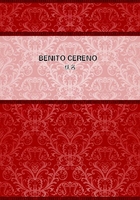"Unanimi consilio," says this author, "ad placitum suimet necessaria discutientes in rebus efficiendis omnes concordant."In case some one refused to acquiesce in the common decision, he was beaten with rods. If any opposition to the vote of the majority arose after the assembly had been held, the dissentient lost all his property, which was either taken from him or destroyed by fire, unless he was ready to pay a certain amount of money, varying according to his rank. The unanimous vote is very often mentioned by contemporary chroniclers, who for this purpose employ the following expressions: "Remota controversia," or "quasi unus homo."(1*) The matters discussed at these early Slavonic folkmotes were of a great variety: the election or the dethroning of a prince, decisions about going to war or making peace, are more than once mentioned by contemporary authors as the direct work of these assemblies.
If we turn our attention to the study of the earliest period in the history of Bohemian political institutions, we shall see the development of facts similar or quasi-similar to those just mentioned. The Bohemian folkmote, the "snem," as it was called, is known to Latin chroniclers under the names of conventus, generale colloquium, or generalis curia. Persons of different estates or orders constituted the assembly. The chronicles mention, as a rule, the presence of the majores natu, of the proceres and comites, as also that of the higher clergy, in clero meliores; but in addition we find at these meetings, at least as far back as the end of the eleventh century, the common people, the populus, Bohemorum onmes, Bohemicae gentis magni et parvi, nobiles et ignobiles. In the year 1055 the people are especially mentioned as taking part in the election of a duke, and in 1068and 1069 as engaged in the nomination of a bishop. In 1130 the Duke Sobeslav convened an assembly of 3000 persons, nobiles et ignobiles, to judge those who had conspired against him. At a later period, after the beginning of the twelfth century, the common people disappear from these assemblies, and the proceres and majores natu remained alone with the high clergy to discuss the affairs of the State. But in the early days with which we are at present concerned the constitution of the Bohemian snem was not very unlike that of an ordinary folkmote, to which all classes of society were equally summoned. Like the folkmotes of the Baltic Slavs, the Bohemian generalis conventus was not a periodical assembly. Like them also, its decisions were the result of a unanimous consent, a fact which is shown by the contemporary documents, when they state that this and that matter have been settled at the assembly "communio consilio et voluntate pari" (Cosmus of Prague, ii. 87), or even more explicitly, "de consensu omnium," "unanimiter."The election first of the duke and later on of the king, the nomination of the bishop, the confirmation or rejection of the laws proposed by the king and his council, the judicial decision of certain exceptionally important cases, such were the regular functions of the Bohemian folkmote. You will have no difficulty in seeing that these functions are the same as those of the popular assemblies of the Baltic Slavs.
In Poland, the folkmotes, known under the name of congregationes generales, sometimes also under that of conciones, coltoquia, or consilia, were in early days composed not only of the higher orders of society, but also of the common people. The Latin Chronicle of Gallus mentions an occasion on which king Boleslaus "imprimis majores et seniores civitatis, deinde totum populum in concionem advocavit." The meaning of this quotation leaves no doubt as to the popular character of these early Polish political assemblies. In no Slavonic state was this popular character so early lost as in Poland. As early as the beginning of the thirteenth century the higher nobility and clergy, the "milites" and the knights, begin to be the only constitutive parts of the Polish "general council."The other feature of the primitive folkmote, the unanimous vote, was much better preserved by the Polish parliament. From the earliest times down to the fall of their political independence, the Poles remained faithful to this very incongruous system. The "liberum veto," the right of each member to make null and void by his single opposition the decisions of the entire assembly, became through the interference of foreign States one of the best means of keeping in check the political activity of the nation. By this veto, Russian, Austrian, and Prussian intrigues more than once prevented the passing of laws and measures, which might have preserved the independence of the country. That the liberum veto had its roots in the most remote period of Polish history may be shown by quotations like the following. According to the chronicle of Cromer, the Polish throne had been offered to the half mythical Cracus, "una sententia," i.e., by the unanimous decision of the people, who had, as we know, no other means of manifesting their feeling than the folkmote. The same unanimous consent is mentioned by another chronicle on the occasion of an election which took place in 1194.
The legal power of the Polish general council was identical with that of the Bohemian snem. It elected the chief ruler of the land and entered into written covenants with him; it discussed questions of international policy, expressed its opinion on matters of taxation, gave its sanction to the legal enactments of the king, the so-called statuta and con stitutiones, and from time to time it exercised judicial authority in certain exceptionally important civil cases. In a word, it possessed the same multiplicity of powers which we have noticed when studying the powers of the Bohemian folkmote.
Hitherto we have consulted only the history of the Northern and Western Slavs. Let us now turn to that of the Southern Slavs.














